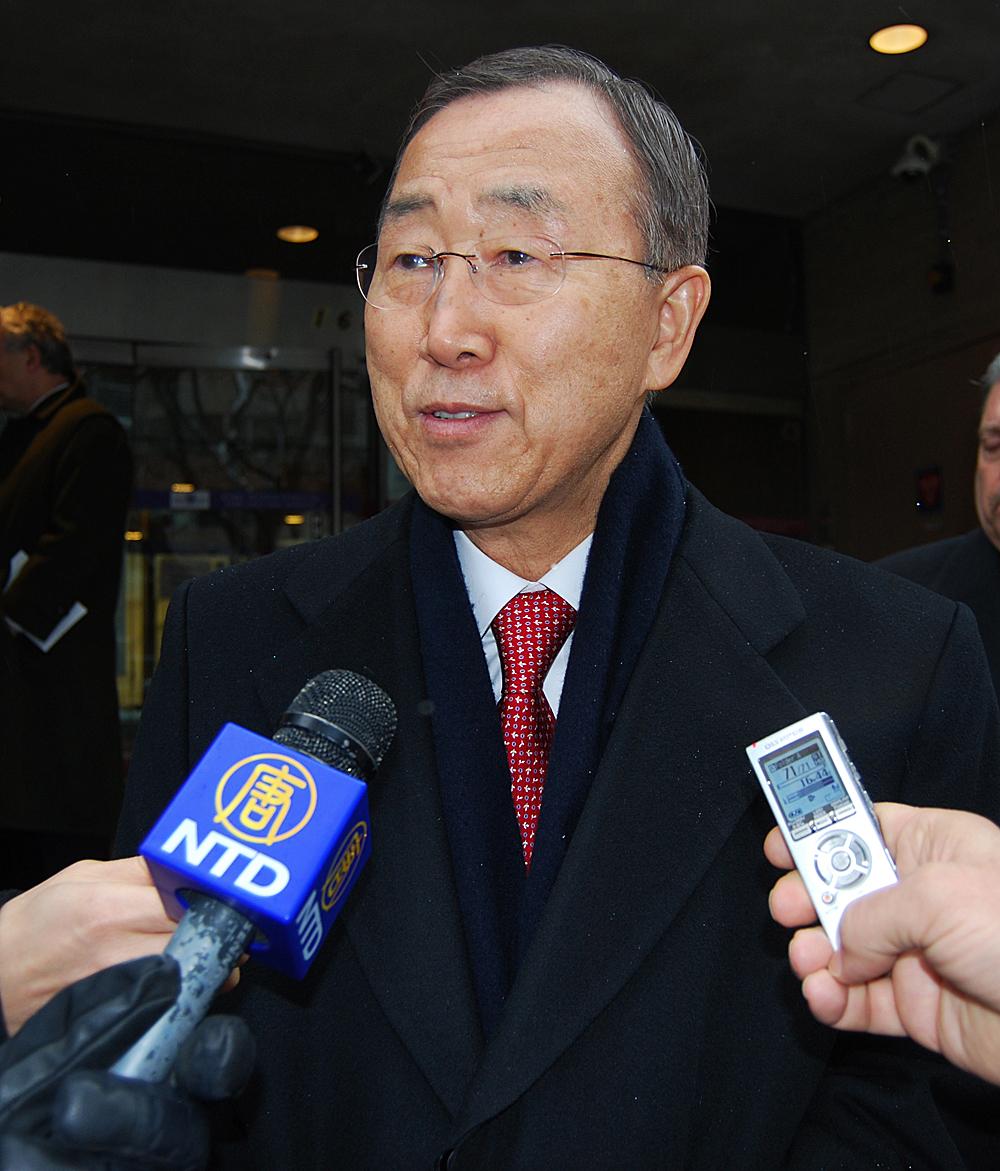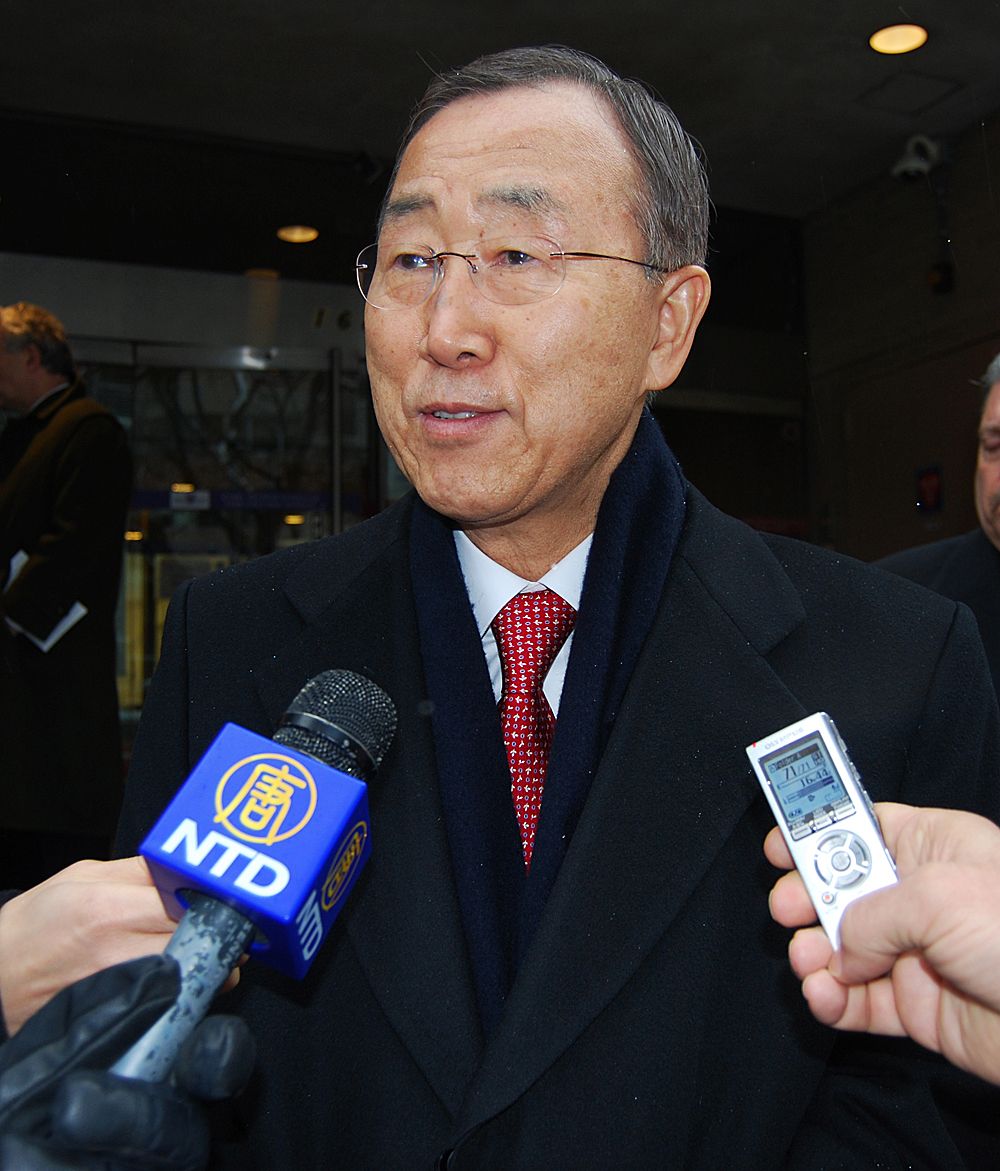NEW YORK—Rabbi Arthur Schneier of the Park East Synagogue in Manhattan invited 60 United Nations diplomats to attend Sabbath services on Saturday in commemoration of the United Nations International Holocaust Remembrance Day, which takes place next Friday, Jan. 27.
President of the United Nations General Assembly Al-Nasser and Secretary-General of the United Nations Ban Ki-moon, spoke at the ceremony as well.
“Remembrance is not only the past; it’s the present and the future. What lessons can we learn from this horrible persecution? Hear the cry of the oppressed,” Rabbi Schneier said. “Hear those who yearn for freedom.”
Rabbi Schneier is a Holocaust survivor and is internationally recognized for his work on the behalf of religious freedom. He is the founder and president of the Appeal of Conscience Foundation, recipient of the Presidential Citizens Medal from President Bill Clinton, and has met with leaders around the world to promote peace.
“I remember during the darkest days, one of the greatest pains was silence, apathy, and indifference,” Rabbi Schneier said.
“You know, when there is silence in the face of injustice, it smashes the hope of the victim who wants to survive the persecution and the oppression,” Rabbi Schneier said during the service.
Secretary-General Ki-moon praised the Rabbi for being a “bridge builder,” being a strong advocate for the United Nation’s values and helping them “swim together against the tide of extremists and radicals.”
“So much of your world was destroyed—by the Nazis, by anti-Semitism, by persecution; I know that many of you here today also experienced this firsthand. Yet you recovered. Even more than that, you have not given up on humankind, though you had good reason to do so. Instead, Rabbi Schneier, you have played a leading role in our shared efforts to build a world of dignity and security in which no such horror can ever happen again,” the secretary general said.
Ban said that the world has since made important progress, and “we must all do more to steer as a global society.”
“This is a pivotal moment in world affairs. We are witnessing shifts in global economic power; we have seen the birth of democratic movements in North Africa and across the Middle East,” he said.
“Climate change has placed us on a collision course with the planet. Inequality, economic uncertainty, and distrust in institutions are all on the rise. Technology continues to link us more closely than ever before. Future generations may well describe this period as an inflection point, when the contours of a new world began to take shape.”
Al-Nasser said to “cultivate world peace, we must first cultivate peace within ourselves.”
“The U.N. Charter—born in the immediate aftermath of World War II and the Holocaust—founded the United Nations ’to save succeeding generations from the scourge of war,'” he said.
“I have seen firsthand the destruction and brutality that continues in this world today. But I have also seen the hope and anticipation glimmering in the eyes of those who are standing up for freedom and dignity,” Al-Nasser said. “Those who are standing up for what they know to be right and true. And those who are resilient and through their courage are changing the course of history.”
“Today we are witnessing these shifts across the globe,” Al-Nasser said.
Mortiz Goldfeer, a Holocaust survivor, said it was very important “not to let the world forget,” and that there is still religious persecution in the world but “we should fight these sins. We should not permit them … to destroy the Jewish people.”
Israel Kiakowski, who organized the event, survived the Holocaust as well, and said it was important for the world to remember. “I hope there is peace in the world and I hope the peace will come,” he said of the countries experiencing terrors of war.
Officials added that the U.N. Outreach Program will be organizing a conference at the University of Southern California on International Women’s Day to address “the Holocaust and the impact of war and mass violence on women today,” and next week the General Assembly’s observance will be “dedicated to children who faced the evil of the Holocaust.” The first week of February has been declared by the General Assembly as “World Interfaith Harmony Week.”
Holocaust Remembered in New York
Rabbi Arthur Schneier of the Park East Synagogue in Manhattan invited 60 United Nations diplomats to attend Sabbath services on Saturday in commemoration of the United Nations International Holocaust Remembrance Day, which takes place next Friday, Jan. 27.

Secretary-General of the United Nations Ban Ki-moon speaks about the importance of remembering the Holocaust outside the Park East Synagogue in Manhattan on Saturday, Jan. 21. Catherine Yang/The Epoch Times
|Updated:






